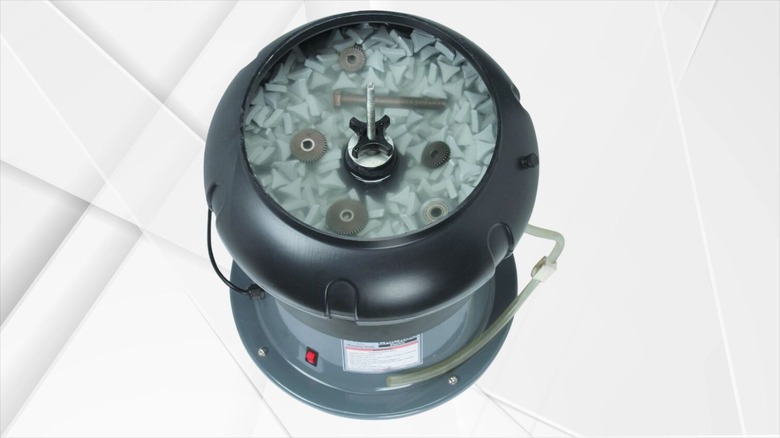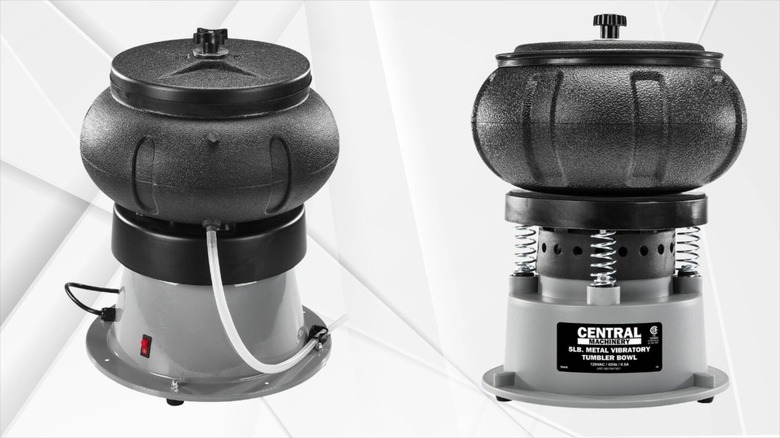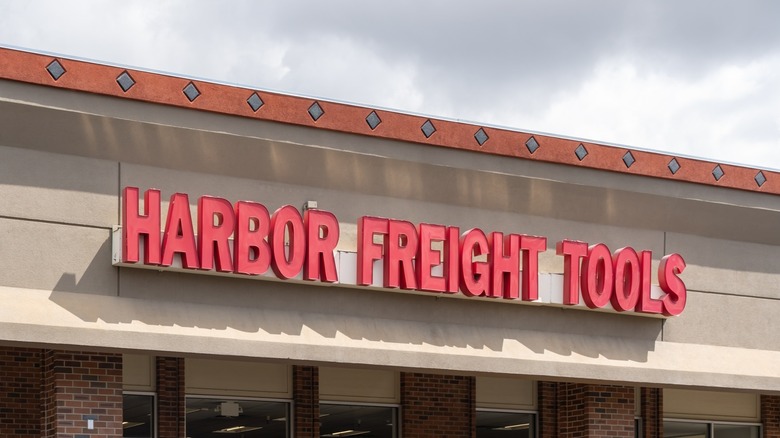Who Makes Harbor Freight's Metal Vibratory Bowls & What Are They Used For?
Rust is the bane of any metal collector, whether they have a bounty of old coins or just an extensive wall of nuts and bolts for future projects. Once something rusts or corrodes, it loses its value or viability as a fastener. Cleaning something like a large coin collection by hand would take forever; the only guarantee from that process is cramped fingers. If it's a clean polish you want without the need for elbow grease, a metal vibratory bowl (or tumbler) should be on your radar.
Not to be confused with a vibratory feeder, which Google will spout back if you just search for "vibratory bowl," a metal vibratory bowl is all about the finishing touch. Available in consumer and commercial applications, the vibratory bowl uses a wet or dry medium, like crushed walnut shells or plastic beads, and intense vibration to clean the surface of most metals. If you've ever seen a rock tumbler in action, it's the same concept, except instead of a shiny rock, you get polished and deburred metals.
If you're working with smaller collections of metals, you won't need a big industrial-sized vibratory bowl. Harbor Freight does have three options available from two different brands: Central Machinery and Chicago Electric Power Tools. While they look mostly identical, the two brands have some variations to justify the price difference. What may not be different between the two, though, is where they're made.
Who makes Harbor Freight's metal vibratory bowls?
Though Harbor Freight is the exclusive seller of both Central Machinery and Chicago Electric Power Tools, it's always possible that the two brands are manufactured in different locations. Unfortunately, if that's the case, there's no real indicator in any of Harbor Freight's materials. The only identifier on both brands is the label that states they are "Made in China." Does this mean they're made in the same factory in China? Not at all, but again, Harbor Freight doesn't disclose the specific location where its China-made tools are manufactured.
Just because they could be made in the same factory also doesn't mean they're identical tools. On the contrary, Central Machinery's higher price tag suggests that it's a higher-quality model. This is far from a bizarre practice, as we've seen parent companies offer different quality of the same product to varying markets. Take Ryobi and Hart, for example. Both power tool brands are products of Techtronic Industries, but they're made for different consumers. Ryobi is sold exclusively at Home Depot, while Hart is a Walmart-exclusive brand.
What's different between the two brands of vibratory bowls?
On the surface, there don't seem to be many differences between the Central Machinery and Chicago Electric Power Tools. However, there are a few items of note to consider before purchasing either. One of the biggest differences is that Chicago Electric only offers an 18-lb model, while Central Machinery has an 18-lb and 5-lb capacity vibratory bowl to cater to users who don't have a large collection of metals.
Looking at the two 18 lb vibratory bowls, some of the differences are negligible. For example, the Central Machinery is slightly lighter at 25 lb compared to Chicago Electric's 26.60 lbs. Both drums are made from polyethylene, but their openings are slightly different. According to the Central Machinery vibratory bowl's manual, it sports an opening diameter of 10 ¾ inches. The Harbor Freight listing for the Chicago Electric 18 lb model notes a 10 ½ inch opening diameter. The negligible difference shouldn't affect the objects you can clean and polish.
How do I know which to buy?
The problem with two items from different brands being so similar is that it can be difficult to determine which is considered the best. Of the three available tumblers on Harbor Freight, only the Chicago Electric model has customer reviews. With more than 280 reviews, it holds a score of 4.4, with over 210 reviews being five stars. According to the product listing, 90% of customers who purchased the 18-lb Chicago Electric Tumbler recommend it.
As for the Central Machinery models, the Harbor Freight listings have no reviews, and an online search produced very limited coverage. One YouTube review was initially positive about the 5 lb model but later updated the video to say the unit stopped working after just over 40 hours of use. It's not really the glowing review one would expect from a tumbler that's priced more than $100 above its counterpart and confirms issues found by The Doubtful Technician, whose model eventually stopped spinning altogether.



